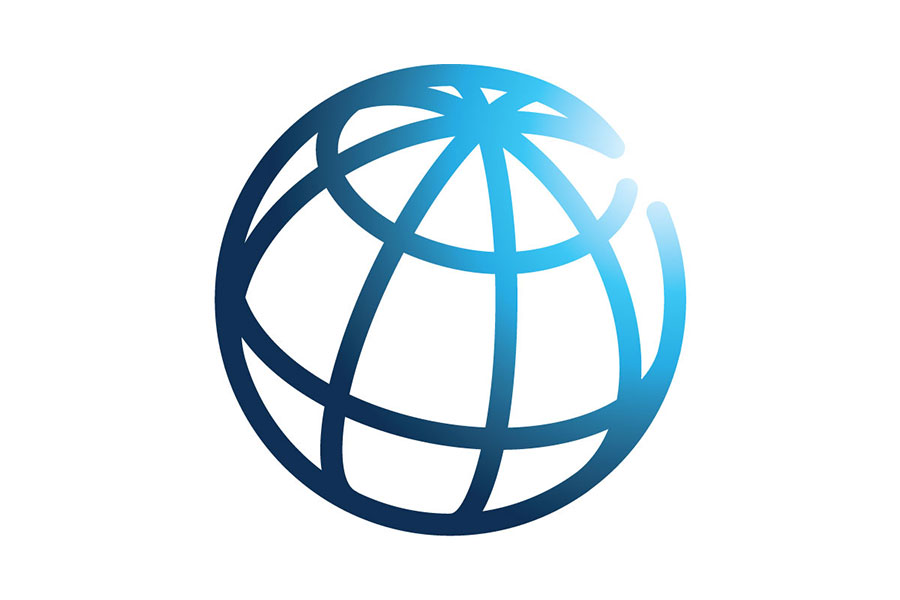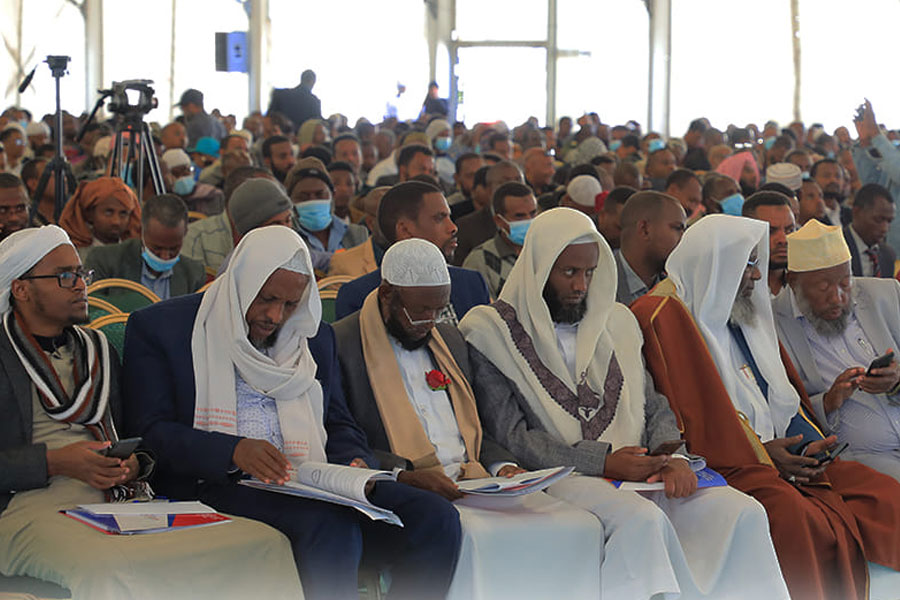
Radar | Sep 24,2022
Regulators at the National Bank of Ethiopia (NBE) have issued a stern warning to several insurance firms for violating rules set to mitigate risks and ensure investments made from insurance funds are safe bets.
Periodic reviews by the central bank revealed a serious non-compliance with the requirements of directives governing reinsurance transactions and the investment of insurance funds, according to Belay Tulu, head of the insurance supervision directorate at the NBE. A directive issued by the regulator two years ago limits the gross retention of insurance business to no more than 10pc of the capital and reserves of insurance firms. The retention ratio refers to the share of premiums passed on to reinsurance companies.
Several insurance firms find it challenging to comply with this requirement.
Ethio Life & General Insurance (ELiG) is one of the firms reprimanded by the NBE. Shimeles Gedlegiorgis, chief executive officer (CEO), argued the nature of the insurance business makes it unavoidable to fall into the tangle. Some insurance policies, such as professional indemnity, carry higher risks and low penetration rates, according to him.
"We transfer most of the risk to reinsurers to protect ourselves," Shimeles told Fortune.
The strategy proved effective for the firm when, last year, the Federal Supreme Court ordered it to pay out a 115 million Br to Walia Steel Industry. Walia Steel is a domestic manufacturer that had bought a marine insurance policy from EliG for a shipment of raw materials from Egypt to ports in Djibouti. The vessel carrying the materials was lost at sea in 2017. ELiG had transferred much of the risk to five reinsurers, including Africa Reinsurance and Ethio-Re, paying out 13 million Br.
Last year, ELiG ceded 94.7 million Br to reinsurers. It recorded a profit of 22.7 million Br, while its equity was valued at 186.7 million Br, 158.7 million Br of which was a paid-up capital.
Ethio Life executives have responded to the regulators, pledging to boost the firm's capital.
“We'll table the proposal to the board in the coming months and then to the general assembly,” Shimeles told Fortune.
However, regulators demanded that setting a minimum gross retention rate and introducing a risk-sharing scheme optimally utilise the industry's risk carrying capacity and reduce undue capital outflow. It is a move industry experts say is unwise.
Ebsa Mohamed, an insurance expert and manager at Alpha Consultancy Plc, says setting a blanket retention ratio covering all business classes is not advisable.
“Risks vary across the different insurance businesses," he said.
Ethio Life is not alone in this predicament. Industry pioneers such as Awash and United insurance are heading in a similar direction.
Awash Insurance reported 270 million Br profits in 2020/21, a 23pc jump from the previous year. The firm ceded 466.8 million Br to reinsurers that year. However, Awash maintains its position as one of the highly capitalised firms in the industry after boosting its paid-up capital to 755 million Br.
United also saw a rise in profits last year, netting 145.1 million Br. Although the firm's gross written premiums grew by 22.4pc to 731.4 million Br, it surrendered 40pc to reinsurers. United's performance last year was mainly driven by investment activities, generating 137.7 million Br. The firm saw its total assets rise 11pc to 1.81 billion Br. Nearly two-thirds of these assets were invested in equities, property, and time deposits.
Regulators are also displeased seeing insurers fail to invest no less than 60pc of their assets in treasury bills and bank deposits.
“We've been requesting regulators to address the issue for the last two years,” said Meseret Bezabih, CEO of United Insurance, which has been in business for 27 years.
Meseret says an adjustment from regulators lowering the investment threshold by five percentage points two years ago has done little to address insurers' concerns.
The industry was expecting a significant downsize in the threshold, according to Kassa Lisanework, CEO of Tsehay Insurance.
“We had expected the ratio to drop to 40pc at the most,” he said.
Executives of the various insurance firms plan to make their arguments against the requirements through the Association of Ethiopian Insurers, an industry lobby group chaired by Yared Molla.
A CEO of Nyala Insurance, Yared is a veteran of the industry, joining it 28 years ago after graduating from the Addis Abeba University in management. He was hired by the Ethiopian Insurance Corporation (EIC), a state owned company that accounts for 47pc of the premiums generated.
He has to deal with the concerns that the industry operates with tight liquidity due to the rules. According to a person working in the industry, this is unfair given the small market share private insurers hold in the industry.
Ebsa disagrees. He believes the insurers are to blame for their plight for failure to diversify portfolios.
Motor insurance, categorised under the general insurance business, takes the lion’s share of the industry’s premium portfolio, accounting for close to 55pc. Last year, the gross written premiums of the general insurance business grew by 22pc to 10.6 billion Br. Exposure to the motor business led firms to pay considerable amounts in claims. The policies significantly contribute to the industry's rising claims and administrative costs. Claims from the general insurance business increased by three percent last year to four billion Birr.
PUBLISHED ON
May 14,2022 [ VOL
23 , NO
1150]

Radar | Sep 24,2022

Radar | Nov 27,2018

Radar | Feb 19,2022

Radar | Sep 19,2020

Fortune News | Oct 29,2025

Radar |

Fortune News | Feb 15,2020

News Analysis | Jul 01,2023

Radar | Jul 13,2020

Radar | Sep 14,2025

Dec 22 , 2024 . By TIZITA SHEWAFERAW
Charged with transforming colossal state-owned enterprises into modern and competitiv...

Aug 18 , 2024 . By AKSAH ITALO
Although predictable Yonas Zerihun's job in the ride-hailing service is not immune to...

Jul 28 , 2024 . By TIZITA SHEWAFERAW
Unhabitual, perhaps too many, Samuel Gebreyohannes, 38, used to occasionally enjoy a couple of beers at breakfast. However, he recently swit...

Jul 13 , 2024 . By AKSAH ITALO
Investors who rely on tractors, trucks, and field vehicles for commuting, transporting commodities, and f...

Oct 25 , 2025
The regulatory machinery is on overdrive. In only two years, no fewer than 35 new pro...

Oct 18 , 2025
The political establishment, notably the ruling party and its top brass, has become p...

Oct 11 , 2025
Ladislas Farago, a roving Associated Press (AP) correspondent, arrived in Ethiopia in...

Oct 4 , 2025
Eyob Tekalegn (PhD) had been in the Governor's chair for only weeks when, on Septembe...